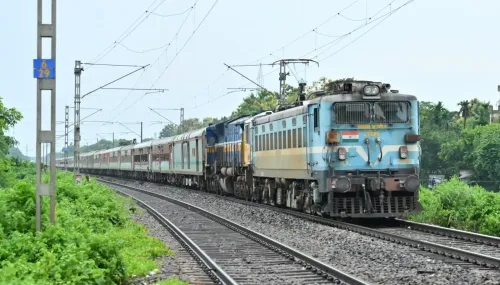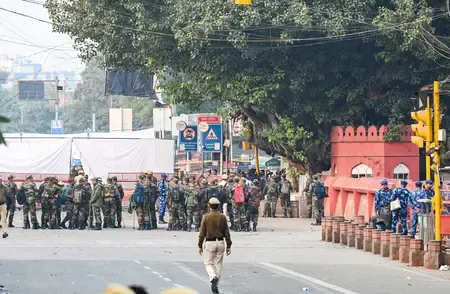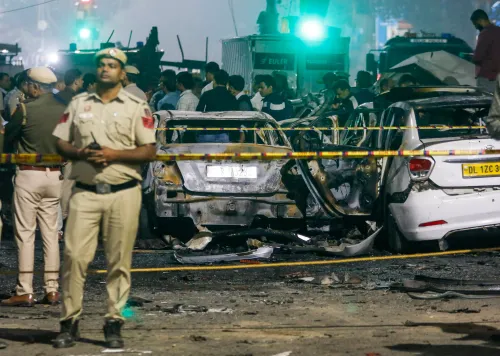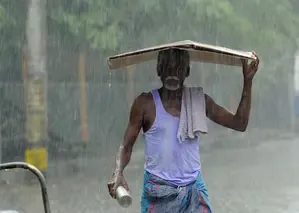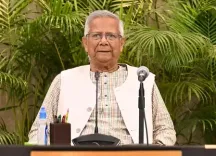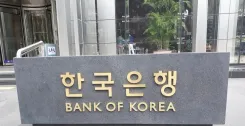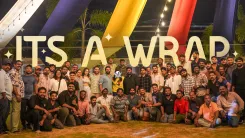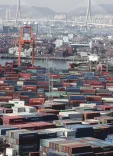What Priorities Did EAM Jaishankar Outline at G7?
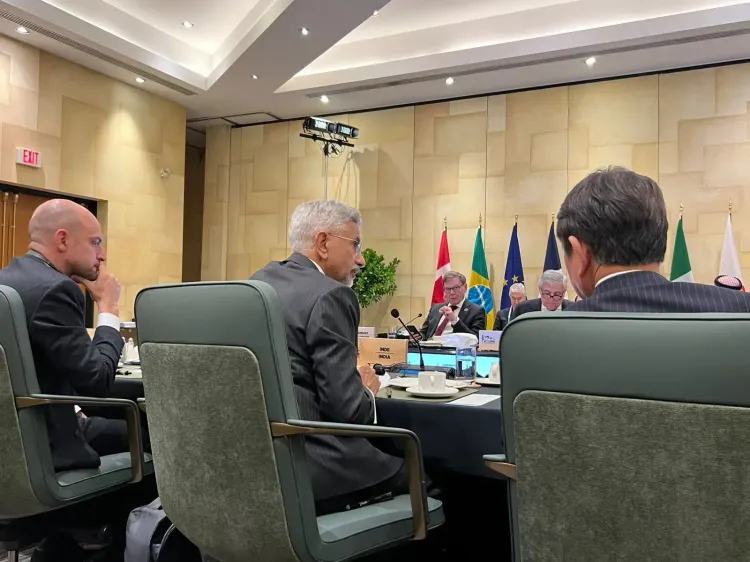
Synopsis
Key Takeaways
- Jaishankar's emphasis on energy security
- India's role in maritime security
- Need for international cooperation
- Strengthening shipping infrastructure
- Importance of UNCLOS
Washington, Nov 13 (NationPress) External Affairs Minister (EAM) S Jaishankar engaged in a variety of bilateral and multilateral discussions during the G7 Foreign Ministers’ meetings in Niagara, Canada. He connected with numerous global leaders while participating in sessions focused on energy security, critical minerals, and maritime security.
During the outreach session concerning energy security and critical minerals, Jaishankar shared India's viewpoint.
In a post on X, he stated, “Addressed the necessity to reduce dependence, enhance predictability, and build resilience on both fronts. International cooperation is essential for moving forward. I highlighted the unpredictability and market constraints in global supply. Increased policy discussions and coordination are beneficial.
He underscored that implementation is the “key” and mentioned that “India is eager to collaborate constructively with global partners in this area.”
Earlier on Wednesday, Jaishankar participated in a special session on maritime security, emphasizing India's role as the “first-responder in the maritime domain” and the nation’s commitment to enhancing HADR partnerships in the Indo-Pacific through joint exercises and logistical agreements.
He also elaborated on New Delhi's strategy for maritime security, which includes the “MAHASAGAR outlook, Indo-Pacific cooperation, and port-led development at home.”
In another update on X, Jaishankar enumerated India's specific proposals: “The necessity for trusted and diversified maritime connections. India’s initiatives in upgrading its shipping infrastructure and creating resilient corridors. The requirement for improved coordination in safeguarding critical maritime and undersea infrastructure. Challenges like maritime threats and economic crimes, including piracy, smuggling, and IUU fishing, require enhanced international collaboration.”
The EAM highlighted the significance of “maritime trade to both national and international prosperity” in an increasingly globalizing world, emphasizing the critical role of resilient ports and secure waterways in achieving our collective goals, while asserting that “UNCLOS must be upheld.”
Jaishankar also conducted numerous bilateral discussions with counterparts from the EU, Ukraine, Saudi Arabia, and the United States.
In his dialogue with Ukraine’s Foreign Minister Andrii Sybiha, they discussed the latest developments in Ukraine. “It was a constructive conversation sharing Ukraine's perspective on recent events,” Jaishankar commented in a post on X.
The Ukrainian Foreign Minister also expressed on X, “I was pleased to meet with @DrSJaishankar to discuss cooperation between Ukraine and India and international developments. I shared our viewpoint on the path to peace, battlefield situation, and Russia’s perilous strikes on critical infrastructure affecting Ukrainian nuclear plants.”
Jaishankar also met with EU High Representative for Foreign Affairs Kaja Kallas to discuss bolstering the India-EU Strategic Partnership and exchange thoughts on the G7 agenda.
In his conversation with Saudi Foreign Minister Prince Faisal bin Farhan, Jaishankar said they “examined bilateral relations, regional hotspots, connectivity, and energy.”
The Saudi Ministry of Foreign Affairs shared on X, “Foreign Minister HH Prince @FaisalbinFarhan met with Minister of External Affairs of India, @DrSJaishankar, on the sidelines of His Highness’s participation in #G7FMM.”
He also met with US Secretary of State Marco Rubio, who extended condolences for the casualties from the recent blast in Delhi.
EAM Jaishankar tweeted, “Great to meet @SecRubio this morning at #G7 FMM. I appreciate his condolences regarding the loss of lives in the Delhi blast. We discussed our bilateral relations, focusing on trade and supply chains. We exchanged views on the Ukraine situation, the Middle East/West Asia, and the Indo-Pacific.”
On Tuesday, Jaishankar held multiple bilateral meetings with his counterparts from Canada, Mexico, France, Brazil, South Africa, the United Kingdom, and Germany.

